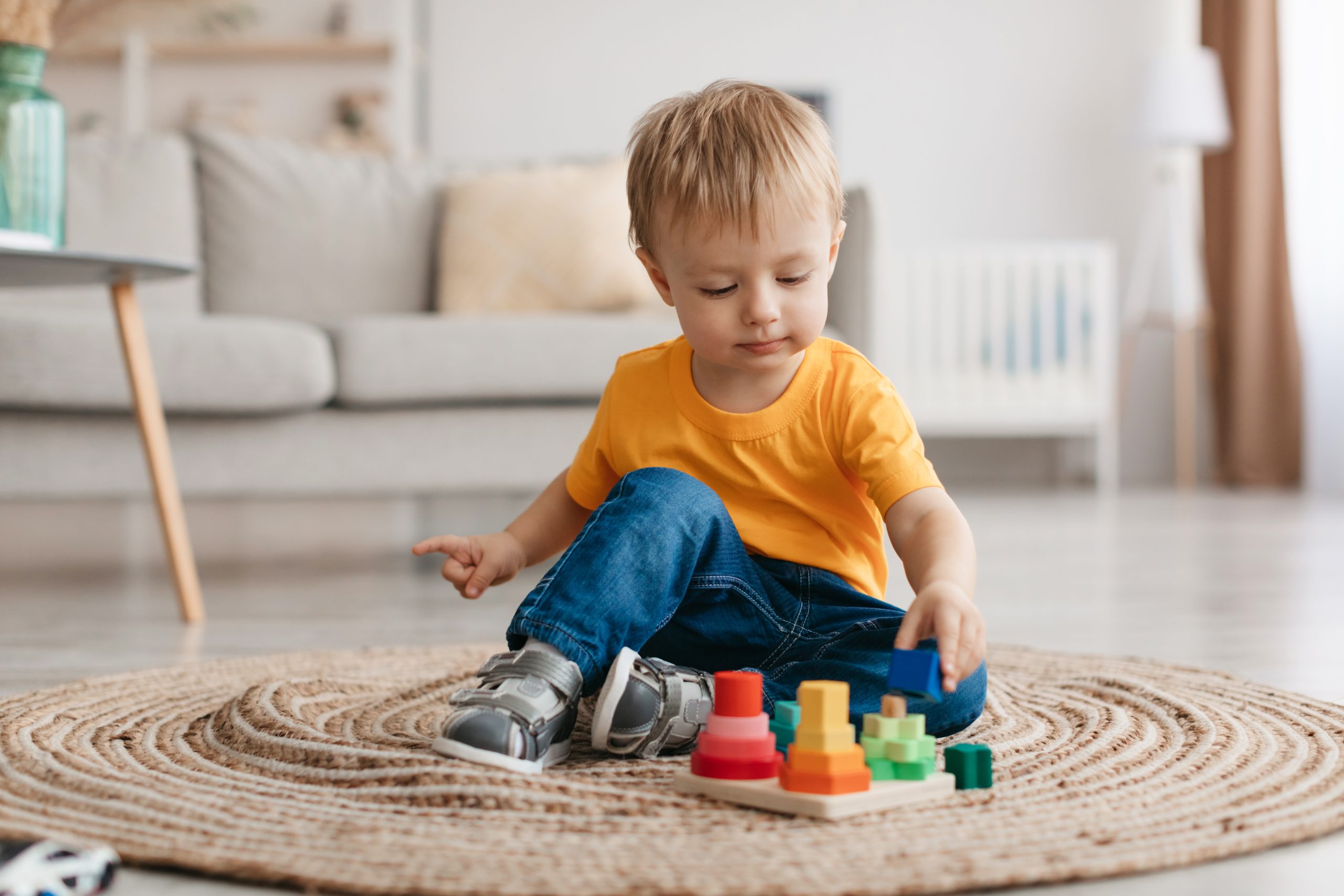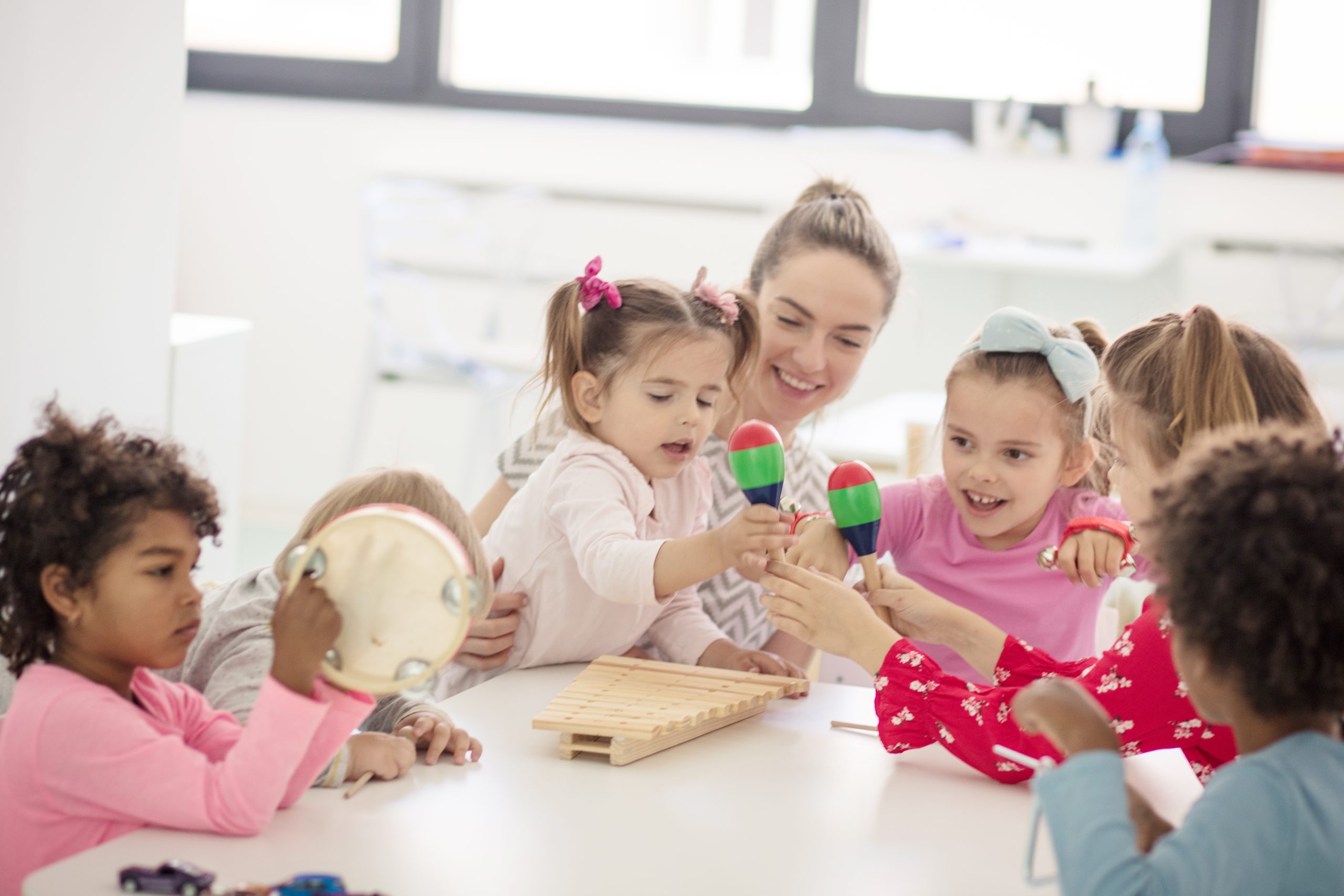We often don’t hear the word “play” associated with learning. Similarly, social skills are typically not discussed until kids reach elementary school age but only if and after barriers to interactions become noticeable and disruptive enough to learning.
The reality is, however, that the two are interconnected, and learning each on a fundamental level starts from infancy. More importantly, the two play a critical role in developing essential foundational skills that set children up for success as they enter school.
Every age, from birth to four, has a series of play and social milestones. Babies cry to communicate. As they grow, they learn to recognize sounds and voices, express emotions, and respond to emotions from others. They learn the basics of their emotional regulation when they begin to self-soothe and wait when someone cannot immediately tend to their needs. Babies learn about the world around them through play which translates to exploring their worlds through their senses (touch, smell, taste, etc.)
In toddlers, communication evolves to more complex forms of gaining and sharing attention with others. This could be through pointing, gestures, or verbal language. Toddlers learn to express and read a wider variety of emotions and to tolerate no, waiting, transitions, others in their play area, etc.
Play serves to further understand the world around them, relate to others, and move from play that is more observatory and exploratory to more social and complex. Through play, toddlers develop essential gross and fine motor skills, learn new language and vocabulary, and develop basic problem-solving skills.
Suppose children fall behind in meeting these milestones. In that case, gaps in social learning and play begin to develop, which could eventually translate to difficulty relating to and interacting with others, the emergence of problem behaviors because of missing coping skills, and inevitably difficulty in school and academics.
Once kids enter school age, they encounter a variety of growing expectations and stressors which they may or may not be equipped to handle depending on how solid their early play and social skills foundation is.
A child who has not mastered tolerating waiting or not getting their way before entering school will easily become overwhelmed with the amount of waiting, sitting, and denied requests they encounter upon entering school.
A child who has not mastered the skills of attending to others and imitating others’ actions and sounds in early play development will struggle to learn from peers and teachers in school, as sharing attention and imitation are foundational to all other types of learning.
Mr. Rogers once famously said, “Play is often talked about as if it were a relief from serious learning. But for children, play is serious learning. Play is the work of childhood.” Play teaches the foundation from which all other interactions and learning occur.
So, the next time you see your child or learner playing, look closely at what they are doing and the skills they are learning and join in on the fun. If you notice skills are missing, that’s ok. The good news is that all these skills can be taught if they are not learned as a natural part of development.
Children are natural sponges, and from birth to 3-5 years of age, they are at their learning prime because of the amount of growth and new connections they are making about the world around them.
Baby Navigator is a fantastic resource for parents and practitioners working with little ones to understand and track the different play and social milestones across the first few years of life, serving as a guide to understanding where your child is in relation to meeting those milestones and things and resources you can do and utilize to assist with the learning of these skills if they are not occurring as a natural part of your child’s/learners development.
 Justyna Balzar is a Board-Certified Behavior Analyst with a master’s degree in education. A co-founder of The Hangout Spot located in Norwalk, CT, she has over 15 years of experience with learners of varying profiles, between the ages of 3 and 18, across multiple settings.
Justyna Balzar is a Board-Certified Behavior Analyst with a master’s degree in education. A co-founder of The Hangout Spot located in Norwalk, CT, she has over 15 years of experience with learners of varying profiles, between the ages of 3 and 18, across multiple settings.



























